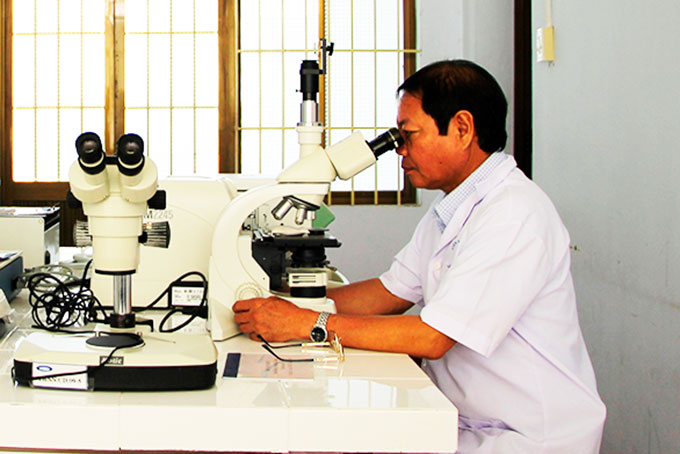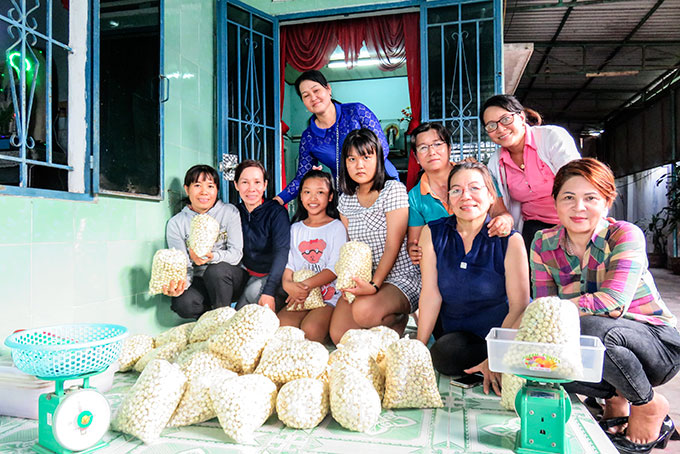
The research on "Prosthogonimus diagnosis and treatment" by PhD Nguyen Duc Tan, Director of The Central Institute of Veterinary Research & Development (IVRD) and his collaborators has been recognized as a technical advance in agriculture...
The research on “Prosthogonimus diagnosis and treatment” by PhD Nguyen Duc Tan, Director of The Central Institute of Veterinary Research & Development (IVRD) and his collaborators has been recognized as a technical advance in agriculture. The project won the first prize at the 2018 – 2019 eighth Scientific & Technical Creation Contest.
The oviduct fluke disease in ducks has distributed throughout the country. The cause is due to Prosthogonimus sp., making considerable affect on efficiency of duck breeding. However, the research on the disease is still limited and no effective diagnosis, prevention and treatment methods have been found.
PhD Nguyen Duc Tan and his collaborators have successfully conducted a research on Prosthogonimus diagnosis, prevention and treatment. This is a solution developed from the result of a Ministry-level research on Biological and epidemiological characteristics of Prosthogonimus in ducks in some southern central provinces and suggestion on some prevention methods. The study has been recognized as a technical advance in agriculture.

|
The oviduct fluke disease is caused by Prosthogonimus cuneatus and P.ovatus, the larvae of whom can be found in the snail Bithynia siamensis and dragonfly Orthrtrum sabina as intermediate hosts. Ducks will be infected with the disease when eating the dragonflies. It takes 19 days for the larvae to hatch. Clinical symptoms of the oviduct fluke disease in ducks include inappetence, droopiness, and emaciation with eyes closed, reduced egg production, thin shells or no shells, resulting in high mortality rate.
According to the researchers, infected ducks should be isolated to be cured, following the prescription: Fenbendazole 16mg/kg or Praziquante 10mg/kg taken twice every 24 hours together with antibiotics Genta-Tylo, ampicillin, amocillin, kanamycin. Besides, vitamins, B-complex, etc are advised for use to build up immunity. PhD Tan warns that after the treatment, ducks must be kept in cages for 3 days to make sure all the germs have gone. Iodine or Cloramin B 1.25% should be sprayed on the farm surface. Besides, antiparasitic Fenbendazol or praziquantel should be mixed in food for ducks periodically.
At present, the procedure has been applied in some provinces of Binh Dinh, Lam Dong, Phu Yen and Khanh Hoa. Le Thang, Chief of Khanh Hoa Animal Husbandry & Veterinary Medicine says this is the first time the procedure has been applied in Khanh Hoa. The procedure includes easy steps with high accuracy and effective prevention methods to reduce outbreaks, helping to increase the animal husbandry productivity.
Speaking at the provincial Scientific & Technical Creation Contest, Nguyen Tan Tuan, Permanent Deputy Secretary of Khanh Hoa Provincial Party Committee, Chairman of the Provincial People’s Council highly appreciated the research for its high practicality and required relevant agencies and departments to apply the advance in duck farming to promote sustainable animal husbandry development.
Khanh Ha
Translated by N.T










